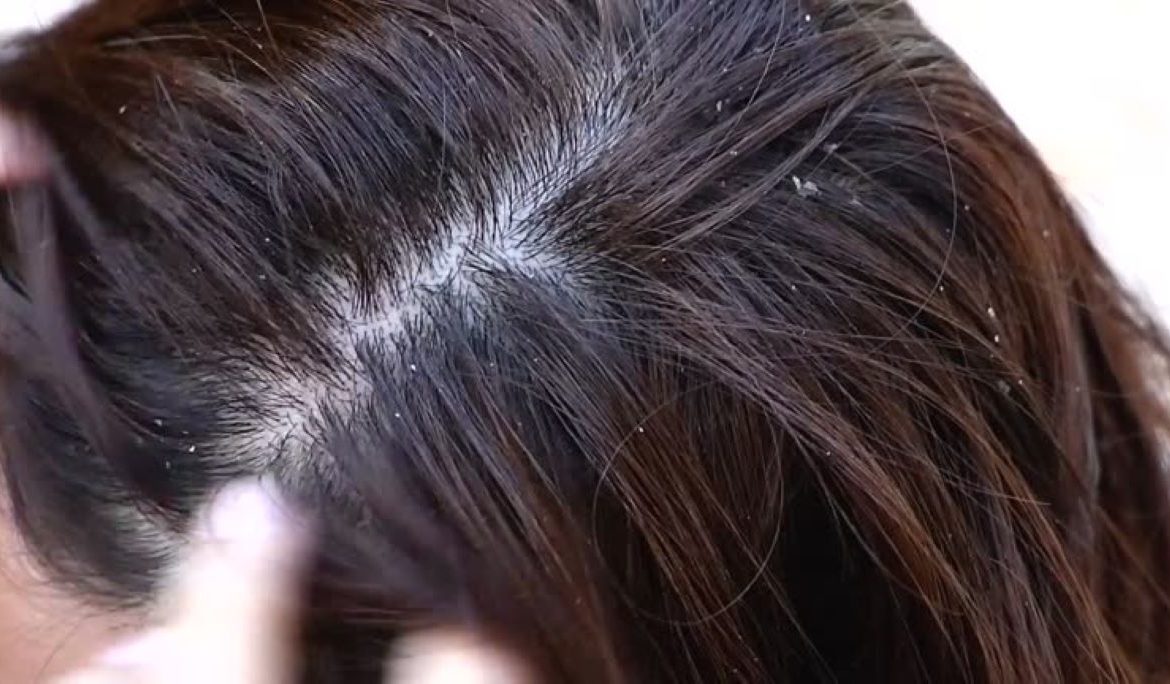Dandruff is a common scalp condition that affects millions of people worldwide. Characterized by flaky skin on the scalp, itchiness, and sometimes even redness, dandruff can be a frustrating problem. While it’s not usually harmful, it can be uncomfortable and embarrassing. Fortunately, there are several effective ways to manage dandruff using both home remedies and over-the-counter treatments.
What Causes Dandruff?
Understanding the root causes of dandruff can help us treat it more effectively. Dandruff is caused by several factors, including:
- Seborrheic Dermatitis: This common skin condition causes greasy, irritated skin and dandruff.
- Dry Skin: Dry skin can lead to small, white flakes, which may intensify in colder months.
- Malassezia Fungus: This naturally occurring yeast on the scalp can multiply, leading to scalp irritation and flaking.
- Scalp Sensitivity: Some people are sensitive to hair products, which can trigger dandruff.
1. Use an Anti-Dandruff Shampoo Regularly
Anti-dandruff shampoos are designed to target dandruff by reducing flaking, irritation, and microbial growth on the scalp. Key ingredients to look for include:
- Zinc Pyrithione: Has antifungal and antibacterial properties.
- Salicylic Acid: Helps remove flakes by exfoliating the scalp.
- Ketoconazole: Effective against fungal dandruff.
- Selenium Sulfide: Controls flakiness and reduces the growth of fungus.
- Coal Tar: Slows down cell turnover, which helps with dandruff.
2. Try Natural Oils for Scalp Health
Natural oils can moisturize the scalp and fight dandruff-causing bacteria and fungi. Some popular options include:
- Coconut Oil: Known for its moisturizing and antimicrobial properties, coconut oil can reduce dryness. Massage a small amount onto your scalp, leave it for 20-30 minutes, then rinse.
- Tea Tree Oil: This powerful essential oil has antifungal and antibacterial properties. Add a few drops to your shampoo or dilute with a carrier oil to reduce fungal growth.
- Olive Oil: Olive oil helps loosen stubborn flakes. Apply it to your scalp, leave it overnight, and shampoo it out in the morning.
3. Maintain Good Scalp Hygiene
Proper scalp hygiene is crucial for controlling dandruff:
- Shampoo Regularly: Regular washing can prevent excess oil and dirt buildup, which contributes to dandruff. If you have oily hair, consider washing more frequently.
- Avoid Hot Water: Hot water strips the scalp of its natural oils, leading to dryness. Opt for lukewarm water when washing your hair.
- Minimize Styling Products: Excessive use of styling products can irritate the scalp and worsen dandruff. Aim to keep styling products minimal or wash them out regularly.
4. Try Apple Cider Vinegar
Apple cider vinegar (ACV) has natural acidity that helps balance the scalp’s pH and inhibits the growth of fungi. ACV can also exfoliate the scalp, removing dead skin cells that cause dandruff. To use:
- Mix equal parts ACV and water.
- Apply it to your scalp, leave for 10-15 minutes, and rinse with lukewarm water.
5. Exfoliate the Scalp
Scalp exfoliation can remove dead skin and product buildup, which is essential for managing dandruff. You can exfoliate using a gentle scrub or even create your own using sugar and coconut oil. Massage the mixture into your scalp for a few minutes, then rinse thoroughly. Exfoliation should be done once a week to avoid irritation.
6. Incorporate Aloe Vera Gel
Aloe vera has soothing and moisturizing properties that reduce irritation and dryness. It’s also antibacterial and antifungal, which can help reduce dandruff caused by infections. Apply fresh aloe vera gel directly to your scalp, leave it for 15-20 minutes, and wash it off with a mild shampoo.
7. Focus on a Balanced Diet
Diet plays an important role in managing dandruff. Nutritional deficiencies, particularly in B vitamins, zinc, and omega-3 fatty acids, can contribute to scalp issues. A diet that includes leafy greens, nuts, seeds, eggs, and fatty fish can help maintain scalp health and reduce dandruff. Staying hydrated by drinking enough water is equally important to avoid dryness.
8. Reduce Stress Levels
Stress can trigger dandruff flare-ups and make it harder for the body to fight off fungal infections. Practicing stress-reducing activities like yoga, meditation, or even regular exercise can positively impact your overall health, including your scalp.
9. Avoid Scratching
Though dandruff can cause an itchy scalp, it’s important to avoid scratching, which can further irritate the scalp, worsen dandruff, and even lead to infections. If itching persists, try applying cool aloe vera gel or using a soothing scalp serum to calm the skin.
10. Take Breaks from Heat Styling
Heat styling tools like blow dryers, straighteners, and curling irons can dry out your scalp, leading to more flakiness and irritation. Whenever possible, air-dry your hair and minimize the use of heat styling to reduce scalp dryness.
For Consultation Contact us on 9158681123
Website – www.chetnahospital.co.in
Address – Chetna Hospital, Sambhajinagar, MIDC, G Block, Near Rotary Club, Chinchwad 411019
.
.
.
#hospital#pune#pcmc#chinchwad#health#healthcare#skin#dermatologist#skinspecialist#skinclinic#hairdermatologist#skindoctor#dermatologistappointment#skincareprofessional#derma#skindr













